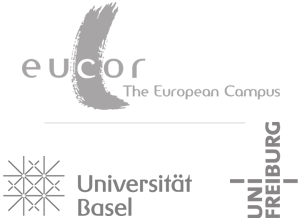Lotte Sommerer, Freiburg. Workshop: Usage-based Cognitive Construction Grammar (Rescheduled: Part 1 on 23 June)
| Lecturer(s) | Priv.-Doz. Dr. Lotte Sommerer |
| Contact person | Dr. Cynthia Dermarkar |
| contact@hpsl.uni-freiburg.de | |
| Date | Friday, 16th June 2023, 14:00 - 17:00 |
| Registration | Registration required |
| Location | Hörsaal 1137, KG I, Freiburg i.Br. Germany |
General description
For centuries linguists have had different points of views on what grammar is and how to model and formalize linguistic knowledge best. Moreover, they have different visions of how language is acquired and why it changes. For decades, there have been two opposing camps: functionalism and formalism. Additionally, in the 80ies, a third major school of linguistic thought emerged, which is rooted in the advances of cognitive science: a cognitive approach to grammar. The aim of this workshop is to introduce the participants to one specific model: namely Usage-based Cognitive Construction Grammar (e.g. Fillmore1988; Goldberg 2006; Diessel 2019; Hilpert 2020; Hoffmann 2022).
In Usage-based Cognitive Construction Grammar, which shares many of its assumptions with Cognitive Grammar and many functional models, language is an emergent ‘Complex Adaptive System’ that is shaped by domain-general cognitive processes. Language is grounded in language-independent cognitive processes such as association, automatization, schematization and categorization. Structure emerges through repetition, analogization, and categorization rather than resulting from a pre-existent matrix. In other words, constructionalists subscribe to a non-nativist approach which does not assume the existence of a universal grammar. Everything about language is learned and grammar is usage-based. Grammatical code is meaningful and functional but constantly changing. Categories are fuzzy and linguistic knowledge is organized in networks of constructional nodes.
Specific Content
In this workshop, I will introduce you to the basic tenets of CxG and discuss how the model is different from other models: Among other things, we discuss the following fundamental ideas:
- a) Most linguistic knowledge is stored in the form of constructions, i.e. form-meaning/function pairings in the sense of De Saussure.
- b) Grammatical templates can be meaningful, independent of the semantics of their lexical fillers.
- c) Functionally and formally related constructions are connected to each other in a network (the constructicon) in so-called constructional families.
The following concepts will also be introduced: definitions and current classification schemes of constructions, vertical and horizontal links, constructional families, (multiple) inheritance, coercion, constructional competition, constructional contamination, constructionalization, etc. In the workshop we will also briefly glance at the empirical methodologies which are currently being employed by constructionist researchers in the field (e.g. collostructional analysis, productivity measures, Semantic Vector Spaces, Regression models, etc…). We will also apply the model to specific examples and do hands-on exercises. Additionally – if you are interested – we will zoom in on the participant’s personal research topics and ask: Can the phenomenon I investigate be conceptualized through a constructional lens? If yes, in what way?
Learning Outcome
After the course you will
- be familiar with the model’s most important assumptions
- have access to the most important literature, learn about the model’s most prominent representatives and have information about useful conferences and online materials
- know how to apply the theory to specific examples and how to visualize constructional templates and networks
- have learned about currently used methods in the field
- understand where the field currently stands and what open questions still need to be answered
The course will be taught in English and is open to PhDs and MA students
There will be an ILIAS platform where all the important documents and materials are provided
Time & Location
Freiburg, Fr. 14:00-17:00 c.t, HS 1137 (KG I)
16.06.2023
23.06.2023
07.07.2023
PD Dr. Lotte Sommerer, Englisches Seminar
